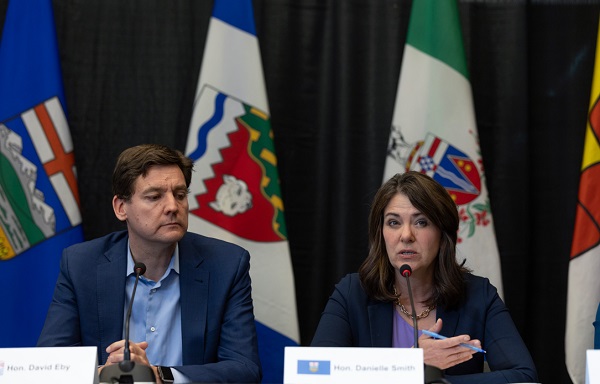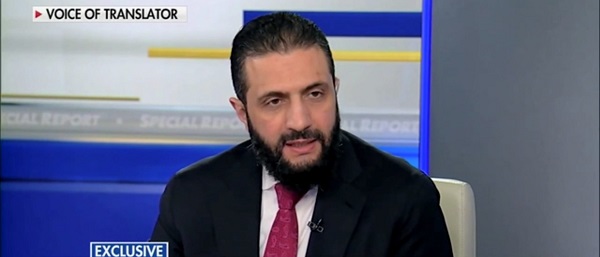Opinion
Wouldn’t we save money and have nicer lawns if we just did our business behind a bush?

It costs $73/tonne to toss out my coffee cup. That is the cost of taking solid waste to the waste management site. It costs about $40 per month for my waste water to get treated and dumped into the river.
Would it not be cheaper to just burn my solid waste in the back yard or dump it over the fence or drop it along some dirt road, or in some farmer‘s field? It might be cheaper in the short term but if everyone did it, I can only imagine.
Speaking of farmers’ fields, you know they have manure spreaders for spreading manure on their fields. So manure is a good fertilizer, good for plants. Interesting because that is part of the reason why we pay $40 per month cleaning our wastewater.
Would it not be cheaper if we all just did our business in our gardens or dumped it in the streets and let the rain wash it away or let it fertilize the ground?
Can you imagine how much crop we could get if 7 billion people left their fertilizer on the ground? Now if only we had CO2 to help our crops grow?
You can see where I am going with this and how foolish it appears, but the argument against carbon pricing is very similar.
How many times have we heard that CO2 is not a pollutant but is a necessity for plant growth. Water is necessary too, but nobody wants a flood or a tsunami.
It took many generations, plagues and courage to get the sewage off the streets and solid waste into landfills. It took generations to get recycling into the mainstream, it will take longer to accept a price on carbon.
We have 3 levels of pollution solid, liquid and gas. We pay $73 per tonne to manage our solid waste and since carbon pricing is based on a solid’s scale why not charge $73 per tonne of carbon?
We all understand about our need for clean air just as we understand our need for clean water and removing our trash. We recycle while many third world nations may not, we treat our wastewater while many third world nations may not, so why don’t we clean our air or at least make those who pollute, pay?
My fire and flood insurance is going up due to increased fires and floods, due to climate change, due to CO2, and health care related costs are going up and the list goes on so I guess everyone is paying for our free air pollution.
Shouldn’t the polluters pay a little bit more?
Just asking.
Energy
For the sake of Confederation, will we be open-minded about pipelines?

From Resource Works
Can we learn to work together and build together?
The Western provinces now stand on the precipice of achieving the status they have craved since joining Confederation. However, let’s be clear: this is about oil and gas, not just oil, not just gas.
Objectively, the West is the leading edge in Canada’s pursuit of 21st-century prosperity. Will the Western provinces get their act together, or, more to the point, will the premiers and the Prime Minister find a way to do what Canada needs them to do?
The political and cultural differences between Alberta and British Columbia date back to before they entered Confederation.
The Colony of British Columbia was a classic creation of the British Empire. The familiar British structures and institutions of governance were in place, just as they were in central and eastern Canada before Confederation. Settlers to British colonies were typically recruited with secure employment. They were usually employees of an industry, working in administration, logistics, or some aspect of commerce. It is fair to say they were not particularly adventurous, beyond the fact that they had travelled all the way to the West Coast of North America.
Before and after Confederation, many Americans moved into the prairie provinces, where British institutions were not yet well-established. Albertans are often seen, not without reason, as the most “American” of Canadians, a perception rooted in the wave of settlers who brought a frontier culture and economy north from the Great Plains. All of which becomes clear when one surveys the range of historical accounts available through a Google search.
The conflict between the staid British heritage of the Colony of British Columbia and Upper Canada, and the restless energy of the American Wild West, has always been in the background of Alberta’s relationships within Canada.
B.C. and Alberta’s conflicts over pipelines do not originate with oil; they are more like siblings in a never-ending quarrel over anything and everything. That does not mean there is no substance to the pipeline dispute, it means it requires a grown-up response.
Because if we did not think things could get more complicated, they have.
Venezuela, with the world’s largest reserves of heavy oil, is now a clear target of the United States. With the U.S. Navy positioned in the Caribbean Sea, clearly surrounding Venezuela, it is no joke and a clear threat to Canada’s oil and gas industry.
It appears evident that the American end goal is unchallenged access to Venezuelan oil. The strategy resembles a return to the centuries-old model of Empire and Vassal States. The tactical move is regime change.
The United States has only 35.2 billion barrels of oil reserves, while Venezuela, ranked first, holds 300 billion barrels, and Canada, ranked third in the world, has 170.9 billion barrels. For the United States to maintain its global oil status, it will increasingly need large quantities from Canada, Venezuela, or Mexico. (It should be noted that Mexican oil production has declined in recent years.)
Should America’s domination of Venezuela come to fruition, what does this put in front of Canada, for our economic security and sovereignty? It raises difficult questions:
• Can we be sure of maintaining access to the U.S. market?
• Would we be limited to the current capacity of the Midwest refineries, as Gulf refineries expand their heavy-oil processing capabilities?
• Can we be certain that the discount we now experience will not grow even larger?
We must be honest with ourselves. Every day brings new evidence that Canada’s oil and gas future points toward the Asia Pacific region, strengthening the case for an open mind about a new pipeline to the Pacific Coast.
The 6.5-billion-person underserved market is far more attractive, as is a market where buyers are focused on their own countries and their own people, with no intent or interest in punishing their suppliers.
For the next half-century, oil and gas will continue to be the dominant global trade currency. This does not mean we should ignore emissions or fail to protect our coastlines, it implies that neglecting the oil and gas bounty we are blessed with would betray our grandchildren.
To protect Canadian sovereignty, we must significantly expand our oil and gas production and shipping capacity to the Asia Pacific region.
Thirty years ago, no one was predicting anything close to what is happening today.
One thing that has not changed is the United States itself. Since its formation, its leaders have been both expansionist and isolationist. Preferential access to resources and Fortress America are today’s manifestations of U.S. foreign and economic policy.
We should not believe this is just Trump. There is broad public support across America. Polls indicate that while many dislike his tactics, they are also no longer accepting of the Free World relying solely on the United States. They also show growing support for a more nationalist economy, a sentiment increasingly visible across most Western democracies, including Canada.
Future American leaders may not be so Trumpian, but it would be wrong to think the Fortress America approach will be abandoned as Trump leaves office.
Prime Minister Carney needs to lead a discussion that finds a path forward and addresses long-held prejudices founded on differing entry points into Confederation.
Jim Rushton is a 46-year veteran of BC’s resource and transportation sectors, with experience in union representation, economic development, and terminal management.
Daily Caller
Ex-Terrorist Leader Goes On Fox News, Gives Wild Answer About 9/11


From the Daily Caller News Foundation
Nearly 3,000 people died across New York City, Washington, D.C., and Shanksville, Pa. during the 9/11 attacks, according to the Pew Research Center. When asked directly on “Special Report with Bret Baier” if he regrets the attack, al-Sharaa distanced himself entirely from the event.
“I was only 19 years old, so I was a very young person, and I didn’t have any decision-making power at that time, and I don’t have anything to do with it,” al-Sharaa said. “And al-Qaeda was not present right then in my area. So you’re speaking to the wrong person about this subject.”
Dear Readers:
As a nonprofit, we are dependent on the generosity of our readers.
Please consider making a small donation of any amount here.
Thank you!
The Syrian leader then shifted the conversation.
WATCH:
“We mourn for every civilian that got killed, and we know that people suffer from the war, especially civilians who pay the price, a hefty price for the war,” al-Sharaa said.
President Donald Trump hosted al-Sharaa at the White House on Monday, welcoming the former al-Qaeda member who once fought U.S. forces in Iraq and served time in Abu Ghraib prison. The U.S. government removed al-Sharaa from its terror list just days before his meeting with Trump, according to CBS News.
Al-Sharaa, who led a rebel coalition that toppled Bashar al-Assad’s regime in December 2024 while heading the militant group Hayat Tahrir al-Sham, has since recast himself as a pro-Western reformer. Legacy media outlets have described his government as “moderate” compared to Assad’s rule.
The visit marks the first time a Syrian head of state has entered the White House since Syria gained independence in 1946, NPR reported. Trump, during a speech in Saudi Arabia, said in May that he would lift U.S. sanctions on Syria.
-

 armed forces22 hours ago
armed forces22 hours agoIt’s time for Canada to remember, the heroes of Kapyong
-

 Digital ID19 hours ago
Digital ID19 hours agoCanada moves forward with digital identification for federal benefits seekers
-

 Daily Caller14 hours ago
Daily Caller14 hours agoLaura Ingraham Presses Trump On Allowing Flood Of Chinese Students Into US
-

 Opinion1 day ago
Opinion1 day agoThe Germans called her the ‘White Mouse’ for her elusiveness
-

 Alberta18 hours ago
Alberta18 hours agoSchool defunding petition in Alberta is a warning to parents
-

 Daily Caller14 hours ago
Daily Caller14 hours agoUS Nuclear Bomber Fleet Shares Fence With Trailer Park Linked To Chinese Intel-Tied Fraudster
-

 Agriculture1 day ago
Agriculture1 day agoBovaer Backlash Update: Danish Farmers Get Green Light to Opt Out as UK Arla Trial Abruptly Ends!
-

 espionage14 hours ago
espionage14 hours agoChinese-Owned Trailer Park Beside U.S. Stealth Bomber Base Linked to Alleged Vancouver Repression Case







